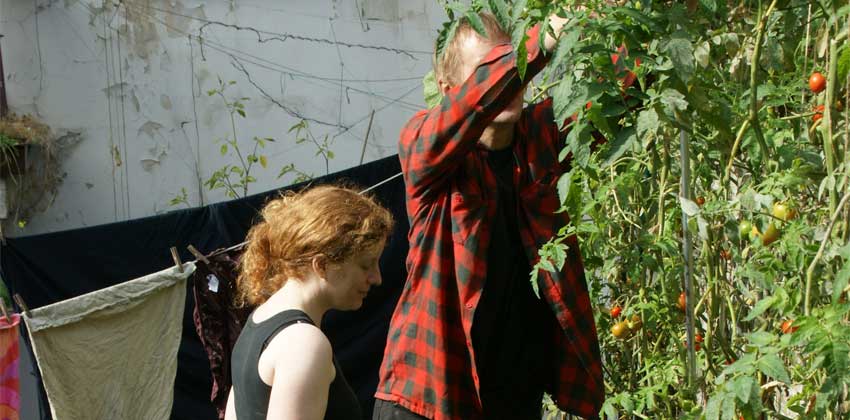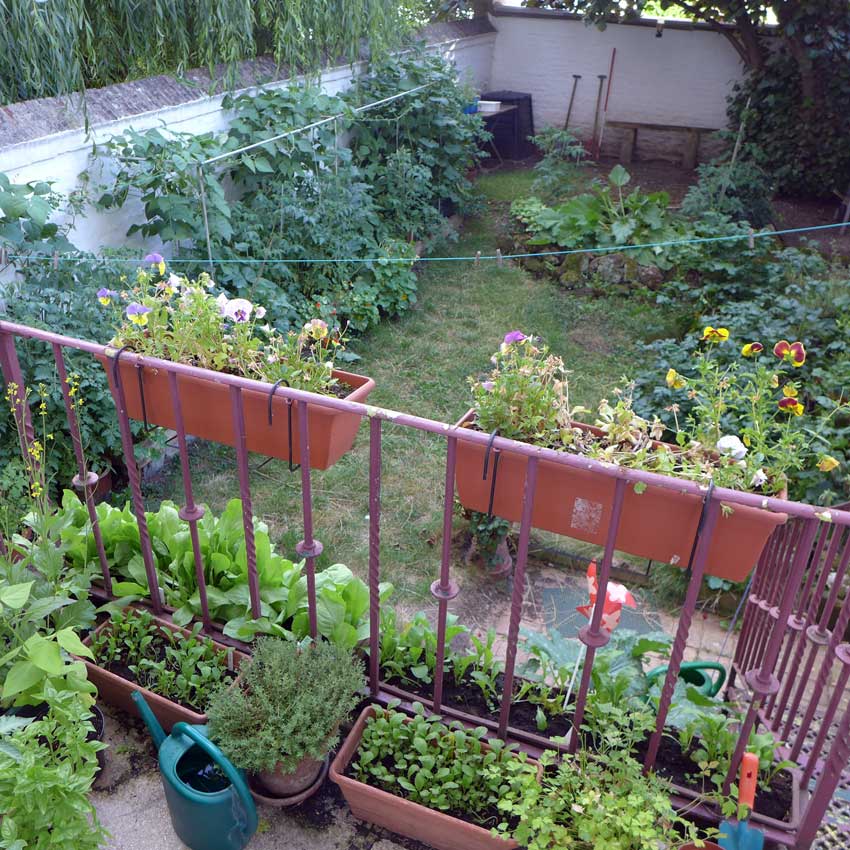
Gardeners are by nature communal creatures, put two together in one place and a discussion of beans, tomatoes and cucumbers will ensue. Gardening is an international and cross cultural activity, often based on traditional practices and histories stretching back over generations. Unfortunately in our modern busy world gardening knowledge is dying out and people no longer have any understanding or connection with the food they eat. Most gardeners consider this loss of knowledge a very sad development.
A gardener is a person who takes responsibility for the one small ecosystem that is their garden. By understanding the health of a garden ecosystem and making it productive the gardener takes account of the native species of plants, birds and insects that all live there. Just as no man is an island, so each garden is affected by everything around it, by neighbouring gardens, surrounding buildings or neighbouring farms.
All gardens experience national and international weather conditions, are affected by trans-national pollution issues and are subject to environmental constraints such as water shortages. In recent years changes in climate patterns are becoming more noticeable and whether these are man-made or natural, they are now having a significant impact on global food production and are appearing at the small domestic garden level. Gardening knowledge now requires an extended understanding of factors affecting plant growth.
The global community of food producing gardeners has never been better served with technical information on gardening issues. With the internet there is an over-abundance of information, often misleading and often of such a generalised nature, local application is difficult. However, as the interactivity of the internet improves, new communities of practitioners are becoming connected and new forms of localised application are emerging.

Organic farming is now a global movement toward sustainable agricultural production, integrated with local traditions and indigenous cultural practices to achieve a more balanced and less environmentally destructive form of food production. Systems such as permaculture have emerged to empower local communities to take responsibility for the environment and employ techniques which restore natural systems and provide for local needs. Thinking globally and acting locally has never been easier.
Community gardening in its many forms, whether creating local allotment schemes, restoring nature in urban brownfield sites, building communal gardens or encouraging local schools to develop educational gardens, all work in a global context of understanding environmental change and adapting human behaviour towards a more sustainable practice. Knowledge and understanding of climate change and how it may affect our lives in the future does require a communal approach at a very local level.